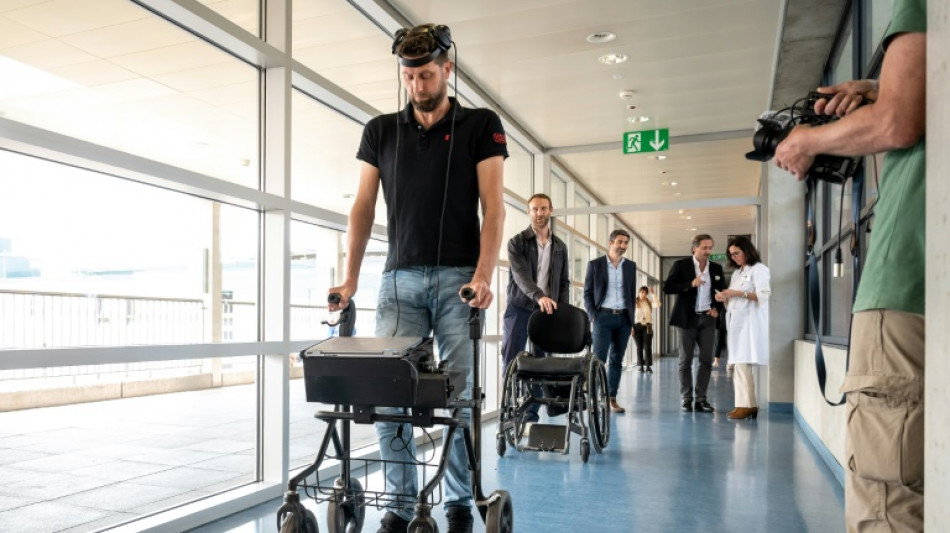
-
 Steelers receiver Metcalf strikes Lions fan
Steelers receiver Metcalf strikes Lions fan
-
Morocco coach 'taking no risks' with Hakimi fitness

-
 Gang members given hundreds-years-long sentences in El Salvador
Gang members given hundreds-years-long sentences in El Salvador
-
Chargers, Bills edge closer to playoff berths

-
 Gang members given hundred-years-long sentences in El Salvador
Gang members given hundred-years-long sentences in El Salvador
-
Hosts Morocco off to winning start at Africa Cup of Nations

-
 No jacket required for Emery as Villa dream of title glory
No jacket required for Emery as Villa dream of title glory
-
Amorim fears United captain Fernandes will be out 'a while'
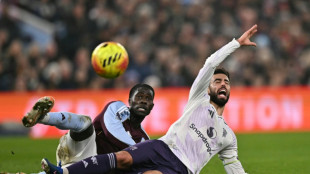
-
 Nigerian government frees 130 kidnapped Catholic schoolchildren
Nigerian government frees 130 kidnapped Catholic schoolchildren
-
Captain Kane helps undermanned Bayern go nine clear in Bundesliga

-
 Captain Kane helps undermanned Bayern go nine clear
Captain Kane helps undermanned Bayern go nine clear
-
Rogers stars as Villa beat Man Utd to boost title bid

-
 Barca strengthen Liga lead at Villarreal, Atletico go third
Barca strengthen Liga lead at Villarreal, Atletico go third
-
Third 'Avatar' film soars to top in N. American box office debut

-
 Third day of Ukraine settlement talks to begin in Miami
Third day of Ukraine settlement talks to begin in Miami
-
Barcelona's Raphinha, Yamal strike in Villarreal win

-
 Macron, on UAE visit, announces new French aircraft carrier
Macron, on UAE visit, announces new French aircraft carrier
-
Barca's Raphinha, Yamal strike in Villarreal win

-
 Gunmen kill 9, wound 10 in South Africa bar attack
Gunmen kill 9, wound 10 in South Africa bar attack
-
Allegations of new cover-up over Epstein files

-
 Atletico go third with comfortable win at Girona
Atletico go third with comfortable win at Girona
-
Schwarz breaks World Cup duck with Alta Badia giant slalom victory

-
 Salah unaffected by Liverpool turmoil ahead of AFCON opener - Egypt coach
Salah unaffected by Liverpool turmoil ahead of AFCON opener - Egypt coach
-
Goggia eases her pain with World Cup super-G win as Vonn takes third

-
 Goggia wins World Cup super-G as Vonn takes third
Goggia wins World Cup super-G as Vonn takes third
-
Cambodia says Thai border clashes displace over half a million

-
 Kremlin denies three-way US-Ukraine-Russia talks in preparation
Kremlin denies three-way US-Ukraine-Russia talks in preparation
-
Williamson says 'series by series' call on New Zealand Test future

-
 Taiwan police rule out 'terrorism' in metro stabbing
Taiwan police rule out 'terrorism' in metro stabbing
-
Australia falls silent, lights candles for Bondi Beach shooting victims

-
 DR Congo's amputees bear scars of years of conflict
DR Congo's amputees bear scars of years of conflict
-
Venison butts beef off menus at UK venues

-
 Cummins, Lyon doubts for Melbourne after 'hugely satsfying' Ashes
Cummins, Lyon doubts for Melbourne after 'hugely satsfying' Ashes
-
'It sucks': Stokes vows England will bounce back after losing Ashes

-
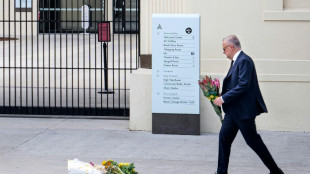 Australia probes security services after Bondi Beach attack
Australia probes security services after Bondi Beach attack
-
West Indies need 462 to win after Conway's historic century

-
 Thai border clashes displace over half a million in Cambodia
Thai border clashes displace over half a million in Cambodia
-
Australia beat England by 82 runs to win third Test and retain Ashes

-
 China's rare earths El Dorado gives strategic edge
China's rare earths El Dorado gives strategic edge
-
Japan footballer 'King Kazu' to play on at the age of 58

-
 New Zealand's Conway joins elite club with century, double ton in same Test
New Zealand's Conway joins elite club with century, double ton in same Test
-
Australian PM orders police, intelligence review after Bondi attack
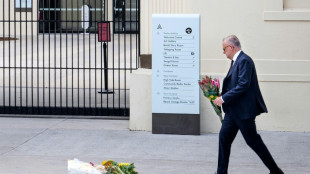
-
 Durant shines as Rockets avenge Nuggets loss
Durant shines as Rockets avenge Nuggets loss
-
Pressure on Morocco to deliver as Africa Cup of Nations kicks off

-
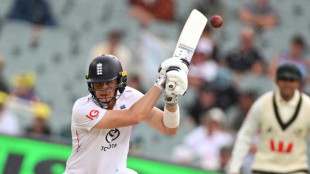 Australia remove Smith as England still need 126 to keep Ashes alive
Australia remove Smith as England still need 126 to keep Ashes alive
-
Myanmar mystics divine future after ill-augured election

-
 From the Andes to Darfur: Colombians lured to Sudan's killing fields
From the Andes to Darfur: Colombians lured to Sudan's killing fields
-
Eagles win division as Commanders clash descends into brawl

-
 US again seizes oil tanker off coast of Venezuela
US again seizes oil tanker off coast of Venezuela
-
New Zealand 35-0, lead by 190, after racing through West Indies tail


Paralysed man walks again via thought-controlled implants
A paralysed man has regained the ability to walk smoothly using only his thoughts for the first time, researchers said on Wednesday, thanks to two implants that restored communication between brain and spinal cord.
The patient Gert-Jan, who did not want to reveal his surname, said the breakthrough had given him "a freedom that I did not have" before.
The 40-year-old Dutchman has been paralysed in his legs for more than a decade after suffering a spinal cord injury during a bicycle accident.
But using a new system he can now walk "naturally", take on difficult terrain and even climb stairs, according to a study published in the journal Nature.
The advance is the result of more than a decade of work by a team of researchers in France and Switzerland.
Last year the team showed that a spinal cord implant -- which sends electrical pulses to stimulate movement in leg muscles -- had allowed three paralysed patients to walk again.
But they needed to press a button to move their legs each time.
Gert-Jan, who also has the spinal implant, said this made it difficult to get into the rhythm of taking a "natural step".
- 'Digital bridge' -
The latest research combines the spinal implant with new technology called a brain-computer interface, which is implanted above the part of the brain that controls leg movement.
The interface uses algorithms based on artificial intelligence methods to decode brain recordings in real time, the researchers said.
This allows the interface, which was designed by researchers at France's Atomic Energy Commission (CEA), to work out how the patient wants to move their legs at any moment.
The data is transmitted to the spinal cord implant via a portable device that fits in a walker or small backpack, allowing patients to get around without help from others.
The two implants build what the researchers call a "digital bridge" to cross the disconnect between the spinal cord and brain that was created during Gert-Jan's accident.
"Now I can just do what I want -- when I decide to make a step the stimulation will kick in as soon as I think about it," Gert-Jan said.
After undergoing invasive surgery twice to implant both devices, it has "been a long journey to get here," he told a press conference in the Swiss city of Lausanne.
But among other changes, he is now able to stand at a bar again with friends while having a beer.
"This simple pleasure represents a significant change in my life," he said in a statement.
- 'Radically different' -
Gregoire Courtine, a neuroscientist at Switzerland's Ecole Polytechnique Federale de Lausanne and a study co-author, said it was "radically different" from what had been accomplished before.
"Previous patients walked with a lot of effort -- now one just needs to think about walking to take a step," he told a press conference in the Swiss city of Lausanne.
There was another positive sign: following six months of training, Gert-Jan recovered some sensory perception and motor skills that he had lost in the accident.
He was even able to walk with crutches when the "digital bridge" was turned off.
Guillaume Charvet, a researcher at France's CEA, told AFP this suggests "that the establishment of a link between the brain and spinal cord would promote a reorganisation of the neuronal networks" at the site of the injury.
So when could this technology be available to paralysed people around the world? Charvet cautioned it will take "many more years of research" to get to that point.
But the team are already preparing a trial to study whether this technology can restore function in arms and hands.
They also hope it could apply to other problems such as paralysis caused by stroke.
Th.Berger--AMWN



